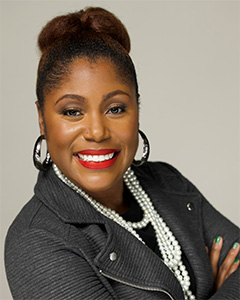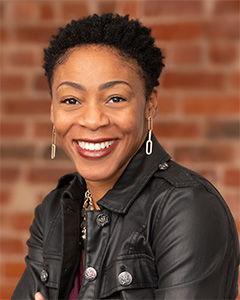The Center for Racial and Social Justice focuses on the impacts of governmental structures and systems that are harmful to public
health. The Center works to understand how individual, family, and community health is influenced by exposure to the child
welfare, juvenile justice and criminal justice systems. We do this by examining the historical origins of youth and family serving
systems and analyzing the impacts of these systems on marginalized, disenfranchised and communities of color.
The Center engages in work that looks at how policies contribute to racial and social injustice in America. Staff are engaged in
projects that center public health and social justice in the child protection, juvenile justice and criminal justice systems and work to develop strategies for prevention, reduction of justice involvement, and reentry and well-being.
We Help Our Partners
Explore
Social justice strategies through a public health lens and their impact on individuals, families, and communities.
Investigate
Systemic oppression, racism, and discrimination fuels system-involvement and its impacts on public health.
Examine
The collateral consequences of policy at local, state, and federal levels and their impact on community health and well-being.
Study
The cumulative effects of police violence on community trauma as a social determinant of health.
Analyze
Formulate, and advocate for policies aimed to improve the health of populations impacted by governmental systems.
Apply
Evaluation and design of policy initiatives on public health and racial and social justice.
Project Highlights

Children of color are more likely to be placed in institutional settings, stay there for long periods of time, and age out of the foster care system without a family. As a result of these experiences, black and brown children and their families are at greater risk for negative health, social, and economic effects that can last a lifetime. CARSJ serves as a consultant and subject matter expert to the Capacity Building Center for the States, supports resource development and provides direct assistance to states in the areas of primary prevention and racial equity, diversity, and inclusion. In these roles, helps jurisdictions build capacity for collaboration between child welfare agencies and the communities they serve.
Learn more at the Child Welfare Improvement Task Force Website

CRSJ has been retained by the Michigan Department of Health and Human Services as a care coordination agency to improve the success of youth transitioning from residential centers to stable community living using the Michigan Youth Reentry Model. CRSJ assists in identifying and connecting youth to various services, supports and organizations to meet their individual housing, physical and mental health, substance abuse, employment and education, and social support and family engagement needs.
Learn more at Michigan Juvenile Justice Re-Entry Website

Equity Impact Assessment. CRSJ is working with governmental agencies to develop and implement equity impact assessment processes used in decision making that follows a list of formalized steps to intentionally identify and reduce potential harm for racial/ethnic minorities and other marginalized populations by engaging authentically with priority populations and stakeholders to co-create and increase equitable outcomes.

CRSJ is partnering with the Department of Justice, the Ingham County Health Department, and the City of Lansing to implement the Advance Peace Peacemaker Fellowship. Advance Peace is dedicated to ending cyclical and retaliatory gun violence in American urban neighborhoods by investing in the development, health, and well-being of those at the center of this crisis. The approach uses the evidence-based practices of street outreach, mentoring, intensive case management, life skills training, cognitive behavioral therapy, and subsidized employment to engage those at the center of gun violence. The centerpiece of Advance Peace is a high-touch and personalized 18-month Peacemaker Fellowship. The Peacemaker Fellowship is grounded in evidence-based practice and includes seven intensive daily touch points between program staff, volunteers, and participating fellows.
Learn more at the Advance Peace Lansing website

As a consultant and subject matter expert, CRSJ serves as the lead consultant for the Michigan Committee on Juvenile Justice for connecting with peers and sharing innovative ideas, information, and resources for implementing policy, practice, and system improvement strategies at the state and local level to identify and reduce racial and ethnic disparities among youth who come into contact with the juvenile justice system. The Racial and Ethnic Disparities Coordination team provides bias training and diversity, equity and inclusion training for systems leaders in child protection and juvenile justice.
Learn more at the Michigan Committee for Juvenile Justice Website

CRSJ was retained by the Michigan Department of Health and Human Services to collect Racial and Ethnic Disparities (RE/D) data for all Michigan counties and Native American Tribes. CRSJ is leading a team that is currently working with juvenile courts, county executives, the Michigan State Police, county prosecuting attorney’s offices, family divisions of county circuit courts, city and county police departments, and the Michigan Department of Corrections to collect RE/D data at ten key contact/decision points. The team is also working with these stakeholders to identify the underlying causes of RE/D and develop RE/D reduction strategies.
Learn more at the Michigan Committee for Juvenile Justice Website

The Michigan Department of Health and Human Services retained CRSJ to develop and conduct a process to monitor compliance with the four core requirements of the Juvenile Justice and Delinquency Prevention Act (JJDPA): Deinstitutionalization of status offenders (DSO); Removal of juveniles from adult jails and lock-ups (JRI); Separation of juveniles from adult detainees (separation); Address the disproportionate processing or confinement of minorities (DMC). CRSJ responsibility in this work is to monitor and collect data from Michigan’s county jails and juvenile detention facilities, manage and support compliance data reporting, and provide technical assistance to county jails, juvenile detention homes, and locked state and private institutions relative to compliance with the core requirements of the JJDPA and provide frequent updates and support to the Michigan Committee on Juvenile Justice regarding the project.
Learn more at the Michigan Committee for Juvenile Justice Website

CRSJ is working with Spaulding for Children and MDHHS to coordinate the implementation of the Quality Improvement Center on Engaging Youth in Finding Permanency (QIC-EY) in the state of Michigan. The QIC-EY is charged with advancing child welfare programs and practice to ensure that they are authentically engaging and empowering children and youth in foster care throughout Michigan, especially in relation to permanency decisions.
Learn more at the Quality Improvement Center on Engaging Youth in Finding Permanency website
Funded by the United States Department of Health & Human Services, Administration for Children & Families, Children’s Bureau, it is expected that the components and impact of the QIC-EY will bring about systemic changes in how children and youth are authentically engaged as reflected in intentional policy, practice, and culture shifts in 6-8 pilot sites.


CRSJ is partnering with the University of California Los Angeles (UCLA) to establish the Quality Improvement Center on Workforce Analytics (QIC-WA) to develop evidence around how to address child welfare workforce needs. Several foundational processes and products will be developed and CRSJ will provide expertise to co-create diversity, equity, and inclusion (DEI) maturity models, a DEI organizational assessment, a DEI employee survey, and a customized measure of DEI tailored to the unique needs of child welfare agencies.

Shondra L. Marshall, PhD
Director
Dr. Marshall is the Director of the Center for Racial and Social Justice. Dr. Marshall has served on boards and organizations where she elevates justice, equity, and strategic thinking around leading practices for historically minoritized populations. Her current leadership efforts include training students, youth, and aspiring leaders in equitable mechanisms to get to systems change. She focuses on centering wellness in all that she does so well-being for all is sustained. Dr. Marshall earned a PhD in Educational Studies with a focus on Urban Education from Eastern Michigan University. Her research foci include, academic performance, cultural responsiveness, racial socialization, student/youth voice. She has experience with child welfare and youth engagement. She has also earned a Master’s Degree in Teaching and Curriculum with a Specialization in Literacy and Language Instruction and a Bachelor’s Degree in Retail Management with a cognate in Business both from Michigan State University.

Bianca Burch, MSW, MA
Senior Reentry Care Coordinator
Bianca Burch is the Senior Reentry Care Coordinator with the Michigan Juvenile Justice Reentry Program at the Michigan Public Health Institute. She has been with MPHI since early 2022. She works to ensure youth and young adults who are currently committed to the state successfully reenter the community and decrease potential for recidivism. Within that work she focuses on supporting the youth, their families, and community stakeholders that are working directly with them by identifying and connecting them with various services, supports, and organizations to meet their individual needs. Her work has centered around supporting youth and their families by addresses needs and concerns around depression and suicide prevention, substance misuse, violence prevention, mentorship, and education. Bianca earned master’s degrees in Social Work from the University of Michigan and in Higher Education Administration from Michigan State University. She is currently working on her Doctorate in Education Evaluation & Research (EER) at Wayne State University with a focus on juvenile justice and education.

DeAndre McFadden
Neighborhood Change Agent
DeAndre McFadden is an Advance Peace Lansing Neighborhood Change Agent and has been with MPHI since January of 2023. Mr. McFadden has over 10 years of experience mentoring young adults, specifically athletes and troubled youth. Mr. McFadden enjoys sharing his experiences as a young adult growing up in an urban area and using his life skills to advance the lives of people he encounters.

Kristine Andrews, PhD
Senior Research and Evaluation Specialist
Dr. Kristine Andrews has led rigorous evaluations and research studies in various fields (early childhood, child welfare, adolescent health, positive youth development, out of school time programs, teen pregnancy and parenting, and social and emotional health). She works with communities to authentically engage and share the stories of those most directly impacted by systems and translates evaluation findings into actionable recommendations. Throughout the entire evaluation process, she prioritizes those most impacted by structural inequities and leads with a culturally responsive and racial equity lens. In addition to serving on multiple advisory boards and as an Equity Coach for multiple initiatives, Dr. Andrews has published, presented, and led training for foundations, universities, federal agencies, and practitioners on how to integrate a culturally responsive and racial equity lens in research, evaluation, philanthropy and practice. She earned her PhD in Family and Child Ecology and Masters in Marriage and Family Therapy from Michigan State University.

Marlon Beard
Field Coordinator
Marlon Beard is a field coordinator for Advance Peace and a life-long resident of Lansing, Michigan with a diverse professional background that includes finance, entrepreneurship, mentorship, and wellness coaching. Collectively his experiences have cultivated his heart, call, and passion to serve, support and build up his community with special emphasis on equity and inclusion. Marlon creates opportunities for youth and minority groups, and he serves as the field coordinator for Advanced Peace Lansing. He uses his community influence and leadership to oversee operations for his team, collaborates with other leaders, and conduct research for the resolution and abolition of community conflict and violence, especially violence involving youth.

Terrance Cooper
Neighborhood Change Agent
Terrance Cooper is Advance Peace Lansing/Ingham Neighborhood Change Agent and also the President/Co-Founder of People Ready Activating Youth. People Ready Activating Youth aims to reduce and prevent youth and gang violence, diffuse conflict amongst students and enhance personal development. Terrance has been committed to the past 10 years offering the city whatever it needs by creating support systems while bridging the gap of communication between administrators and high-risk / at-risk students and young adults. Terrance has experience in school districts and empowers youth through community building, authentic relationships, mentorship, and engagement.

Victoria Key-Walker, BA
Reentry Supervisor
Victoria Key-Walker came to MPHI in 2019 with a passion and commitment to the well-being of others, social justice and health equity. Before MPHI, she worked as a dental assistant for over 30 years, then she returned to the classroom to obtain her Bachelor of Arts degree in Sociology Social Psychology from Western Michigan University with a minor in Social Work and Non-Profit leadership. She has worked and volunteered in various communities throughout Michigan and in other countries, assisting underserved adults and young people. Her first assignment at MPHI was Juvenile Justice Reentry Coordination. She embraces opportunities with a solution focused mindset, as she supervises the Reentry Coordination daily activities of both staff and clients and assists the CSO with a variety of administrative tasks. Victoria’s hobbies are spending time in the sun, driving fast cars, music festivals and volunteering.

LaTesha Richardson, BS
Administrative Support Specialist
LaTesha Richardson is an Administrative Support Specialist in the Center for Racial and Social Justice. She provides support to the Advance Peace project. The Advance Peace project works to reduce gun violence in U.S. urban neighborhoods by providing transformational opportunities to young men involved in lethal firearm offenses and placing them in a high-touch, personalized fellowships. LaTesha is a graduate of Eastern Michigan University with a Bachelor of Science degree. She brings over 20 years of experience in nonprofit association administrative roles. LaTesha is committed to ensuring that all disadvantaged individuals realize the valuable qualities of life. LaTesha was born in Lansing, Michigan and loves to volunteer at her church, work with youth programs, attending concerts, and spending time with her family and friends.

Aaron Blankenburg
Neighborhood Change Agent
Aaron Blankenburg is a Neighborhood Change Agent in the Center for Racial and Social Justice. Aaron works with the Advance Peace project working directly to prevent gun violence in the local cities. He works to transform neighborhoods and schools by providing opportunities to young men and designing personalized fellowships for them. Aaron was born and raised in Lansing and is a youth football coach of many years. He is a leader in the community and loves working with the youth.

William Carthen Jr.
Peacekeeper
William Carthen Jr. is a native of Lansing, Michigan. William is dedicated to using his platform to engage and educate local gangs, community leaders, nonprofit organizations, and religious groups. William created and piloted a Gun Violence Prevention program for ECAC (Eastside Community Action Center) in Lansing. He is passionate about the community, and desires to help and create meaningful change in his position as a Peacekeeper in the Center for Racial and Social Justice-Advance Peace Unit.

Charles Richardson, JD
Strategy Manager
Charles Richardson is the Strategy Manager for Advance Peace. Charles is responsible for the oversight, implementation, and monitoring of the Advance Peace initiative. Charles is passionate about ending the disparate and unequal treatment experienced by those who are underserved in our communities. He believes that incorporation of Advance Peace in local communities is an essential asset in reducing cyclical and retaliatory gun violence. Charles earned dual Bachelor of Art’s degrees from Eastern Michigan University with an emphasis in Public Law & Government and Speech Communication. Charles also has a Juris Doctorate degree from the University of Toledo College of Law. He has spent the past 28 years of his career dedicated as a UniServ Director for the Michigan Education Association advocating on behalf of educators and working with other nonprofit associations supporting local communities. Charles has extensive experience and knowledge in the areas of strategic planning, advocacy, civil rights, mentoring/coaching, and conflict resolution. Charles has spent three decades as a youth mentor and coach of multiple sports.

Alicia Baldwin-Bailey, BA
Program Assistant
Alicia Baldwin-Bailey is a program assistant for the Center for Racial and Social Justice with over fifteen years of administration and management expertise. Alicia has been in pursuit of a degree in Business Administration at Oakland Community College and have completed business coursework at Central Michigan University. Alicia Baldwin-Bailey specializes in nonprofit work which has focused on ensuring proper healthcare for senior citizens. Her experience of administrative and management reaches across multiple fields including retail, education, and non-profit spaces. Outside of work, she cherishes family time, enjoys cultivating her close friendships, loves traveling and working on her candle business.

Ellen Satterlee
Program Assistant
Ellen Satterlee joined MPHI in 2010 as a Medicaid Provider Support Specialist, specializing in professional claims. Ellen developed their training program and eventually moved up to become a team leader which developed into a supervisory position. In 2018 she transitioned to Program Assistant for the Center for Child and Family Health and the Center for Health Equity Practice where she worked with both centers and assisted in planning, organizing meetings, and coordinating training sessions for statewide and national meetings. In the fall of 2023 Ellen joined the Center for Racial and Social Justice and offers administrative support to MPHI Chief Strategy Officer and also supports the Michigan Child Welfare Improvement Task Force whose focus is on reducing racial disparities in child welfare outcomes.

Don Brown
Advance Peace Peacekeeper
Don Brown, a dedicated peacekeeper and community leader, raised in the Lansing area of Michigan. Don has always been passionate about making a positive impact in his community. With a strong focus on youth development and gun violence prevention, Don has been an active leader in various community initiatives. He served as an Assistant Coach for Youth Basketball Organization for 7 years, where he mentored and supported young athletes both on and off the court. Through his many professional roles, Don has utilized his skills to spread messages of hope and positivity to the community. With his deep roots in the Lansing area and his commitment to fostering a safer and more harmonious community, Don Brown is a proven advocate for peace and unity. His experience, leadership, and dedication make him valuable in the role as a community peacekeeper.

Jerrimi Anderson
Advance Peace Peacekeeper
Jerrimi Anderson is an Advance Peace Peacekeeper. Jerrimi is responsible for reducing gun violence in U.S. urban neighborhoods by providing transformational opportunities to young men involved in lethal firearm offenses and placing them in a high-touch, and personalized fellowship. Jerrimi is very passionate about the overall safety of those who have ever felt threatened or ostracized by their own community, whether it is mental or emotional health, physical wellbeing, and economic injustice. He believes we must focus on the root causes of gun violence such as: poverty, inequality, austerity and a lack of opportunity. Jerrimi earned a dual bachelor’s degree in behavioral psychology and criminal justice whilst having four minors in Philosophy, Sociology, Anthropology and Marine Biology from Western Michigan University. He has been a dedicated and faithful volunteer within his community in Detroit, Michigan and Kalamazoo, Michigan. Jerrimi has a diverse experience with many demographics within the community, from protesting against police brutality, finding mental health resources for college students and seniors, helping those with disabilities to get back into the world without feeling like an outsider, and finding housing for young black LGBTQ+ children who’ve been kicked out their homes.

Sidney Black
Advance Peace Peacekeeper
Sidney Black is a peacekeeper for Advance Peace with extensive knowledge in mediation, communication, facilitation and conflict resolution. He provides mentorship support to adults and at-risk youth. Sidney is the chair of the B.L.A.C.K. (Bold Leaders Acquire Commanding Knowledge) Foundation which is a nonprofit organization that provides and fulfills a multitude of needs to and in the community at large via fundraising events, clothing and food drives, as well as many other services. He also Co-Chairs 17 WINTERS which centers around transforming negative thinking patterns and replaces them with positive solution-oriented pathways. Sidney’s experience spans over two decades, during which he has dedicated himself to working with, empowering, and educating both current and former incarcerated individuals. His primary goals are twofold: reducing the recidivism rate and equipping these individuals with sustainable long-term solutions to break the cycles of incarceration permanently.

Ward Beard
Advance Peace Peacekeeper
Ward Beard, an Advanced Peace Peacekeeper from the southside of Lansing, Michigan, graduated from Alabama A&M University with a major in Communications and a minor in Sociology. With a background in radio as a host at Power 96.5FM and WLNZ 89.7FM, Ward utilized his platform to blend hip hop music and culture with interviews from politicians, athletes, and public figures to bring awareness to social and public health issues. Additionally, as a multimedia specialist, he brings a dynamic skill set to his endeavors. Ward is actively engaged as a board member for a non-profit organization and has also worked with the youth, notably for his work as a high school liaison to transform at-risk students with low attendance challenges. Beyond his professional pursuits, Ward’s creativity is also alive and well at home, where he likes to cook full-course meals, spending time with family and children, and pursuing acting as a hobby. Ward made an on-screen appearance in ‘Batman vs Superman’, ‘Detroiters’, ‘Empire’ and more. Driven by a passion to uplift individuals in the community, Ward aims to combat gun violence and foster positive change.
Contact Information
Center for Racial and Social Justice
2436 Woodlake Circle, Suite 300
Okemos, MI
48864
Phone: 517-648-6650
Email: CRSJ@mphi.org


